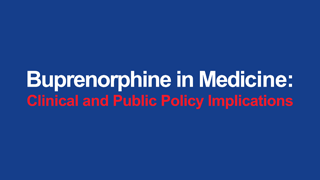Evaluation of treatment changes following electronic consultation to a pharmacist-run urine drug testing service in a veterans healthcare system
DOI:
https://doi.org/10.5055/jom.2016.0358Keywords:
urine, drug screen, drug test, pharmacist, veterans, e-consultAbstract
In 2013, the North Florida/South Georgia Veterans Healthcare System established a pharmacist-run urine drug testing (UDT) electronic consultation (e-consult) service to assist providers with interpretation of this useful yet complex clinical tool. This pilot study aimed to classify clinical treatment changes implemented following e-consult to a pharmacist-run UDT service and analyze factors limiting pharmacist intervention postconsultation. One hundred forty-three e-consults were completed in the 2-year study period including interpretation of 190 UDT results classified as expected, unexpected, or not necessarily inappropriate based on prescription profile at time of urine immunoassay test. Preconsult evaluation revealed that in more than 70 percent of cases, no confirmatory testing was ordered on the sample in question by the requesting provider. Of the 28 percent of UDT results classified as unexpected, 32 percent identified the presence of an illicit substance. Completed e-consults provided either education-based (informative) or actionbased (decisive) recommendations. In 50 percent of the cases where unexpected substances were identified, pharmacy specialists recommended immediate action to be taken by the provider. Subsequent review indicates that timely documentation of postconsultation action by requesting provider was only present in 32 percent of this group. Continued efforts toward an improved understanding of UDT utility by providers, along with expedited placement of e-consult following urine collection, may allow for increased implementation of pharmacist interventions and lead to more optimal use of this clinical tool.
References
Frieden TR, Houry, D: Reducing the risks of relief—The CDC opioid-prescribing guideline. N Engl J Med. 2016; 374(16): 1501-1504.
U.S. Department of Veterans Affairs, Office of Inspector General: Healthcare Inspection—VA Patterns of Dispensing Take-Home Opioids and Monitoring Patients on Opioid Therapy. Washington, DC. 2014. Report 14-00895-163.
Dowell D, Haegerich TM, Chou R: CDC guideline for prescribing opioids for chronic pain—United States, 2016. MMWR Recomm Rep. 2016; 65(1): 1-49.
Gourlay DL, Heit HA, Caplan YH: Urine Drug Testing in Clinical Practice: The Art and Science of Patient Care. Stamford, CT: PharmaCom Group, 2015.
Moeller KE, Lee KC, Kissack JC: Urine drug screening: Practical guide for clinicians. Mayo Clin Proc. 2008; 83(1): 66-76.
Bertholf RL, Johannsen LM, Reisfield GM: Sensitivity of an opiate immunoassay for detecting hydrocodone and hydromorphone in urine from a clinical population: Analysis of subthreshold results. J Anal Toxicol. 2015; 39(1): 24-28.
Morasco BJ, Krebs EE, Cavanagh R, et al.: Treatment changes following aberrant urine drug test results for patients prescribed chronic opioid therapy. J Opioid Manag. 2015; 11(1): 45-51.
Morasco BJ, Gritzner S, Lewis L, et al.: Systematic review of prevalence, correlates, and treatment outcomes for chronic non-cancer pain in patients with comorbid substance use disorder. Pain. 2011; 152: 488-497.
Heit HA, Gourlay DL: Using urine drug testing to support healthy boundaries in clinical care. J Opioid Manag. 2015; 11(1): 7-12.
CDC: Understanding the Epidemic: Drug Overdose Deaths in the United States Hit Record Numbers in 2014. Atlanta, GA: CDC, National Center for Injury Prevention and Control, 2016.
Reisfield GM, Salazar E, Bertholf RL: Rational use and interpretation of urine drug testing in chronic opioid therapy. Ann Clin Lab Sci. 2007; 37(4): 301-314.
Published
How to Cite
Issue
Section
License
Copyright 2005-2025, Weston Medical Publishing, LLC and Journal of Opioid Management. All Rights Reserved.










